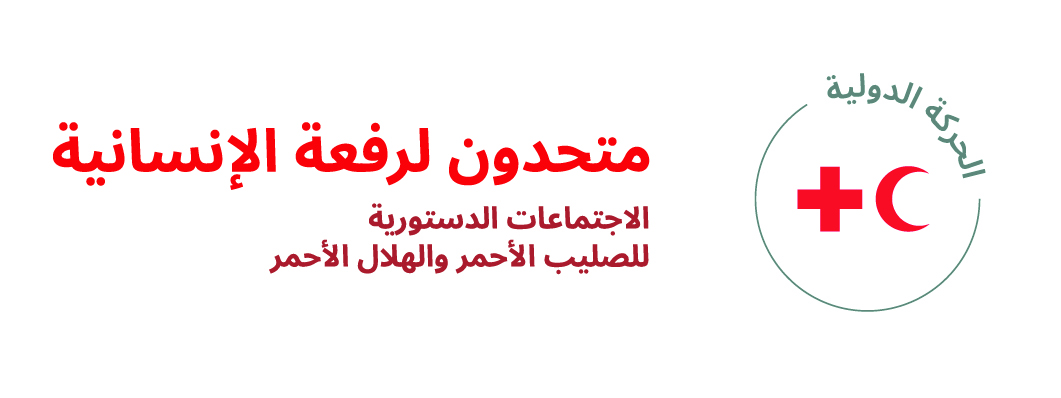الإجراءات المتخذة:
The approach of the British Red Cross (BRC) to Health Care in Danger (“HCiD”) is focused on promoting awareness and understanding of the relevant provisions under international humanitarian law (IHL) that prohibit violence against patients, health-care workers, facilities and vehicles, and that guarantee safe access to and delivery of health care in armed conflict. In this regard, the BRC has implemented the following HCiD initiatives in 2016 and 2017 relevant to the five different commitments of the Joint Pledge.
1. Promoting the adoption, implementation and dissemination of appropriate domestic legislative and regulatory frameworks on the protection of health care and on the effective co-ordination of health care in armed conflict or other emergencies:
-
- 26 June 2017: The British Red Cross and the ICRC co-authored a paper covering a range of IHL issues for the Meeting of Senior Officials of Commonwealth Law Ministries (SOLM) and the Meeting of Law Ministers and Attorneys-General of Small Commonwealth Jurisdictions (LMSCJ), both held in October 2016. The paper addressed matters including health care delivery in armed conflict. The paper has been up-dated for presentation at the Commonwealth Law Ministers’ Meeting (LMM) in October 2017.
-
- 26 September 2016: Working level meeting with officials from the Foreign and Commonwealth Office (FCO), the Ministry of Defence (MOD), and the Department for International Development (DFID), to discuss possible ways to give effect to the HCiD Resolution adopted by the 32nd International Conference, and the respective joint Commonwealth and European Union pledges on the same topic.
2. Promoting the development and integration of relevant practical measures, including those designed to minimise harm to the wounded and sick, health care personnel, facilities and medical transports during operations involving armed or security forces, including in their orders, procedures and training:
-
- 13 September 2016: The UK NGO – Military Contact Group (NMCG) meeting included a discussion on HCiD, with speakers from the FCO’s Conflict Department, the ICRC’s London Office, and MSF UK.
3. Promoting, where relevant, the adoption of legislation regulating the protection and use of the distinctive emblems and taking measures to promote a broad understanding and appropriate use of these emblems:
-
- 1 October 2016: Annual IHL lecture, including the protection of the medical function, with reference to relevant HCiD publications. This was delivered to students on the Conflict and Catastrophe Medicine diploma course at the Worshipful Company of Apothecaries in London
4. Encouraging the consideration of other additional means of identification which may enhance the protection of health care services:
-
- 17 – 19 May 2017: Participated in the Annual HCiD Meeting and the HCiD Movement Reference Group Meeting.
-
- 2 May 2017: Participated in the ‘Protecting Medical Impartiality’ event organised by the British Medical Association, the ICRC and Médecins Sans Frontières (MSF) UK.
-
- 18 October 2016: Meeting with UK academic researcher about potential research projects related to HCiD.
5. Enhancing understanding of the rights and responsibilities of health care personnel and the principles underlying ethical principles of health care through the provision of appropriate training for health care personnel and where necessary, armed forces and security forces, the judiciary, civil servants, academia, the media and civil society:
-
- 12 April 2017: The British Red Cross, together with a senior officer from Army Legal Services, delivered an IHL Training Day for UK Defence Medical Services personnel and for several civilian legal advisers from the Ministry of Defence.
-
- 9 December 2016: The Joint Statement on HCiD, “Everyone wounded and sick has the right to health care,” was circulated to relevant UK government officials.
-
- 8 December 2016: As a member of the UK Defence Medical Services Ethics Committee, the BRC Head of International Law contributed to the draft Defence Medical Services Ethics Policy. This may include reference to the Ethical Principles of Health Care in Times of Armed Conflict and Other Emergencies developed by the ICRC and partner organisations. The Ethics Policy has not yet been finalised.



